Dados do Trabalho
Título
SAMETA: AN OPEN LABEL, THREE-ARM, MULTI-CENTER PHASE III STUDY OF SAVOLITINIB + DURVALUMAB VS SUNITINIB AND DURVALUMAB MONOTHERAPY IN PATIENTS WITH MET-DRIVEN, UNRESECTABLE, LOCALLY ADVANCED/METASTATIC PAPILLARY RENAL CELL CARCINOMA (PRCC)
Introdução e Objetivo
Papillary renal cell carcinoma (PRCC) is the most common subtype of non-clear cell RCC and accounts for 10–15% of RCCs. Many PRCC cases are MET-driven, characterized by genomic abnormalities resulting in dysregulation of the MET signaling pathway. Savolitinib is an oral, potent and highly selective MET tyrosine-kinase inhibitor (TKI) demonstrating preliminary clinical activity in advanced solid tumors, including MET-driven PRCC, defined as presence of any of the following molecular alterations, in the absence of co-occurring fumarate hydratase mutations: chromosome 7 gain, MET amplification, MET kinase domain variations, or hepatocyte growth factor amplification. In the Phase III SAVOIR study, in PRCC, savolitinib monotherapy showed encouraging efficacy vs the multi-targeted TKI, sunitinib. In addition, non-clinical studies suggest a possible anti-tumor effect of MET inhibitors and programmed cell death-ligand (PD-L1) inhibitors, such as durvalumab; emerging data from the Phase I/II CALYPSO study investigating savolitinib + durvalumab shows a notable efficacy signal in patients (pts) with MET-driven PRCC. The SAMETA study (NCT05043090) is designed to evaluate the efficacy and safety of savolitinib in combination with durvalumab vs sunitinib and durvalumab monotherapy in PRCC.
Método
In this open-label, three-arm, multi-center, Phase III study, adult pts with unresectable, MET-driven and locally advanced/metastatic PRCC are eligible. ~200 pts (23 countries, 165 centers) will be randomized in a 2:1:1 ratio into three treatment arms (A–C) with stratification by International metastatic RCC database consortium risk group & PD-L1 expression tumor status. Arm A: oral savolitinib 600 mg once daily (QD) + intravenous (IV) durvalumab 1500 mg every 4 weeks (Q4W); Arm B: oral sunitinib 50 mg QD for 4 consecutive weeks, followed by a sunitinib-free interval of 2 weeks Q6W; Arm C: IV durvalumab 1500 mg Q4W. Study treatment continues until disease progression (per RECIST v1.1) or another discontinuation criterion is met. Primary endpoint is progression-free survival (by BICR; RECIST v1.1). Secondary endpoints include overall survival, objective response rate and duration of response. Safety will also be reported. The first pt was enrolled 28 Oct 2021 and recruitment is currently ongoing globally.
Resultados
Available when the primary endpoint reads out.
Conclusão
NA
Área
Uro-Oncologia
Instituições
Clínica AMO - Bahia - Brasil
Autores
AUGUSTO MOTA, TONI K CHOUEIRI , ANDREA JULIANA PEREIRA DE SANTANA GOMES, DANIEL DA MOTTA GIRARDI, JULIANA LORENZONI ALTHOFF, WANNING XU, LYNNE POOLE, AINO TELARANTA-KEERIE, RYAN HARTMAIER, THOMAS POWLES
